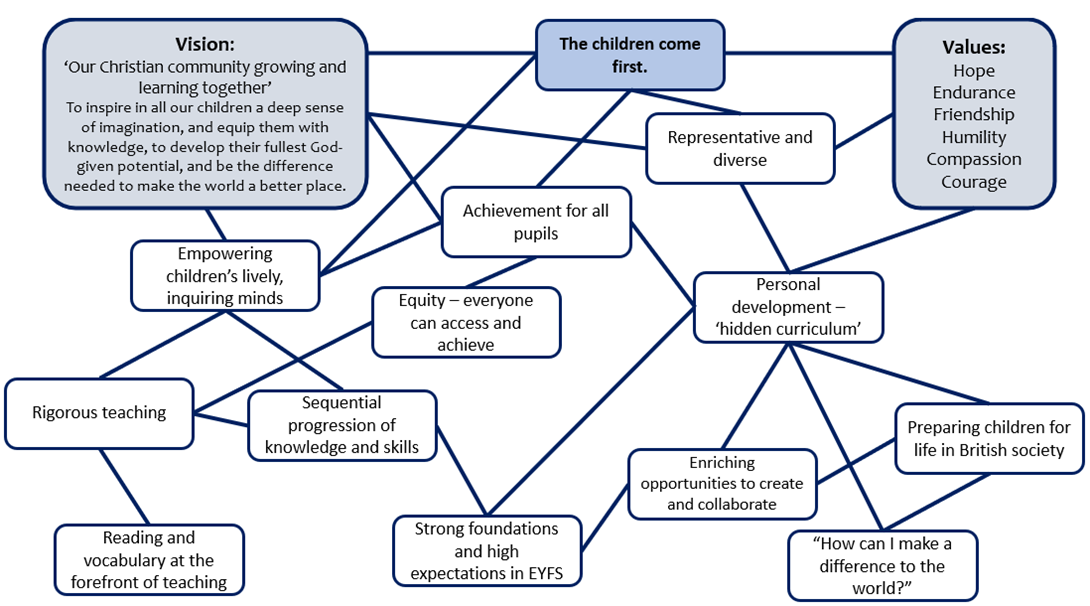Curriculum
Our curriculum is all the planned activities that we as a school sequentially organise in order to promote learning, personal growth and development. We follow the requirements of the EYFS Framework (September 21) and the 2014 National Curriculum, which aims to introduce children to the essential knowledge to be educated citizens. Our curriculum builds on the National Curriculum by drawing on current research to ensure our children remember more and make connections across subjects.
Please take the time to look at our curriculum maps and if you have any queries, please contact the Head Teacher, Mrs Sear, or our curriculum leads Mr Carere and Mrs Doherty via the school office - admin@stnicholasceprimary.co.uk.
Our intent
We firmly believe in the education of the 'whole child' and we do this by providing our pupils with a good range of extracurricular activities and enrichment opportunities. This also includes the ‘hidden curriculum’, or what the children learn from the way they are treated and expected to behave. We recognise that pupils should be challenged in their schooling and be empowered to succeed, not only whilst they are at St Nicholas, but beyond.
The diagram below, sets out our intent and vision for all pupils regardless of their starting points and background. Our aspiration knows no bounds!

In conjunction with our vision and the promotion of our school values, we aim to teach the children how to grow into positive, responsible people who can work and cooperate with others, whilst developing knowledge, skills and attitudes to learning, in order to achieve their full potential. At St Nicholas we have designed our curriculum with pupils’ learning and personal development at the core of what we do. We recognise that a curriculum has to be broad, balanced and offer pupils opportunities to grow as individuals as well as learners.
Through a combination of learning techniques, we aim to ensure pupils enjoy learning and feel prepared for life after school. We also offer our pupils new and exciting experiences through educational visits, workshops, enrichment weeks, activities that are designed to promote enquiry, build resilience, confidence and self-esteem.
At St Nicholas CE Primary School, we seek to create opportunities for children to experience and excel in a range of activities that enhance and extend the National Curriculum. Children have opportunities both inside and outside the classroom, for example: Residential trips, Forest School, a variety of sporting events, Trust events, Careers Week, Health week and visitors to school.
Implementation
Implementation describes the way in which we deliver our intent consistently each day. To do this we have carefully designed our knowledge rich curriculum. This is designed to enable learners to acquire relevant subject knowledge which underpins the application of skills. Skills and knowledge are carefully and progressively mapped across each key stage and subject area. At St Nicholas CE Primary School, we have started a journey of development and implementation that will see the creation of a cohesive curriculum for our children. In the documents section below, you can read our development and implementation plan.
Our teaching is precise and informed by our formative and assessment. We assess progress and attainment each half-term and have termly pupil progress meetings. These meetings allow teachers to meet with school leaders and the SENCO to discuss each child and plan intervention programmes for the children who need extra support.
We regularly report to parents about how well their children are doing at parent’s evenings, review meetings and in their mid-year and annual report. Our assessment process is focused on next steps in learning for individual children to fit the new, year group expectations. This allows teacher to ensure that all children are challenged effectively, and their progress is closely monitored.
Impact
Children achieve well by developing knowledge and skills as they progress through the school. This is reflected in the results that are achieved at the end of Early Years Foundation Stage, Key Stage 1 and Key Stage 2.
The children leave the school in Year 6 ready to move on to secondary school successfully. They are academically, physically and spiritually developed with an established love of learning.
Children are guided by a strong moral compass, showing an understanding of the importance of being safe, ready and respectful.
The impact of the curriculum is evaluated through:
- Internal and external statutory assessments
- Trust Monitoring Reviews
- Working alongside with our Trust Director of Education and our Aquinas Advisory Council
- Rigorous monitoring of teaching, learning
- Parent and pupil voice.
Curriculum-Gallery (ID 1001)
-
Art and Design
Art and Design
-
Computing
-
DT
-
English
-
Geography
-
History
-
Maths
-
MFL
-
Music
-
PE
-
Phonics - Early Reading
Phonics - Early Reading
Phonics - Early Reading (Our Learning - Curriculum menu tab)
-
PSHE/RSE
-
RE
-
Science
